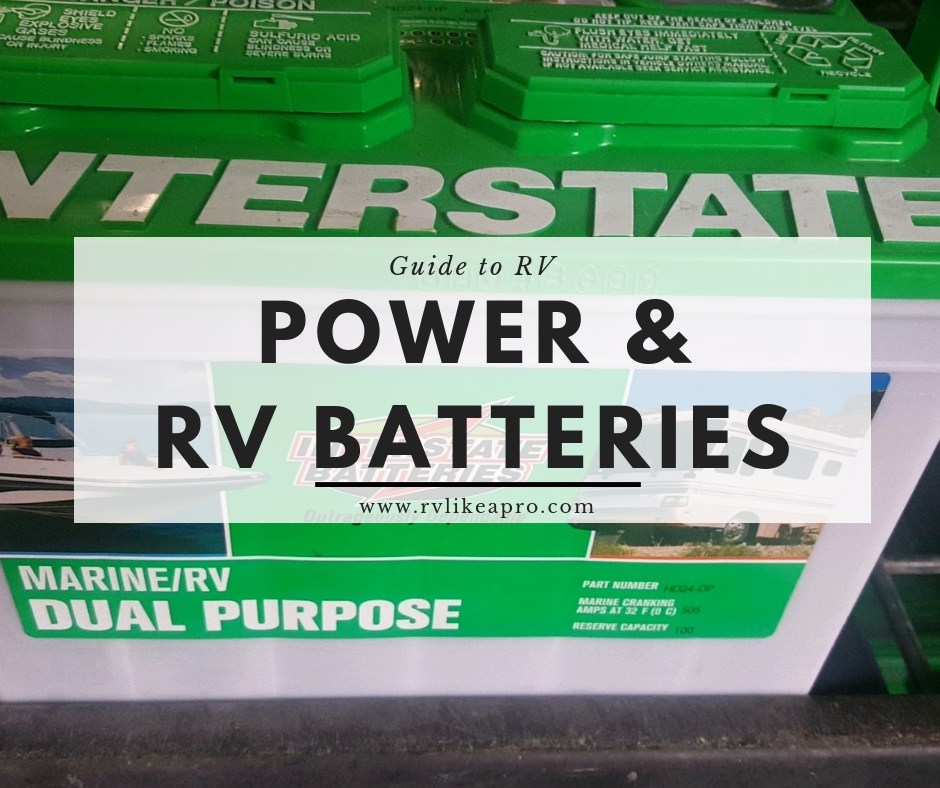
10 Things to know about RV Power & Batteries
Power is probably not something that you think about everyday but when you are camping suddenly it becomes very important. Here are 10 things you need to know about powering your RV and RV batteries!
1. Types of Batteries
Deep-Cycle Battery
Marine Battery
A marine battery typically falls between a starting and deep cycle battery, although some marine batteries are true deep cycle batteries. Often, the labels “marine” and “deep cycle” are used interchangeably or together, which causes some confusion. Marine batteries are just fine to use in an RV camper.
Starting Battery
| U1 | 34 to 40 Amp hours | 12 volts |
| Group 24 | 70-85 Amp hours | 12 volts |
| Group 27 | 85-105 Amp hours | 12 volts |
| Group 31 | 95-125 Amp hours | 12 volts |
| 4-D | 180-215 Amp hours | 12 volts |
| 8-D | 225-255 Amp hours | 12 volts |
| Golf Cart & T-105 | 180 to 225 Amp hours | 6 volts |
| L-16, L16HC etc. | 340 to 415 Amp hours | 6 volts |
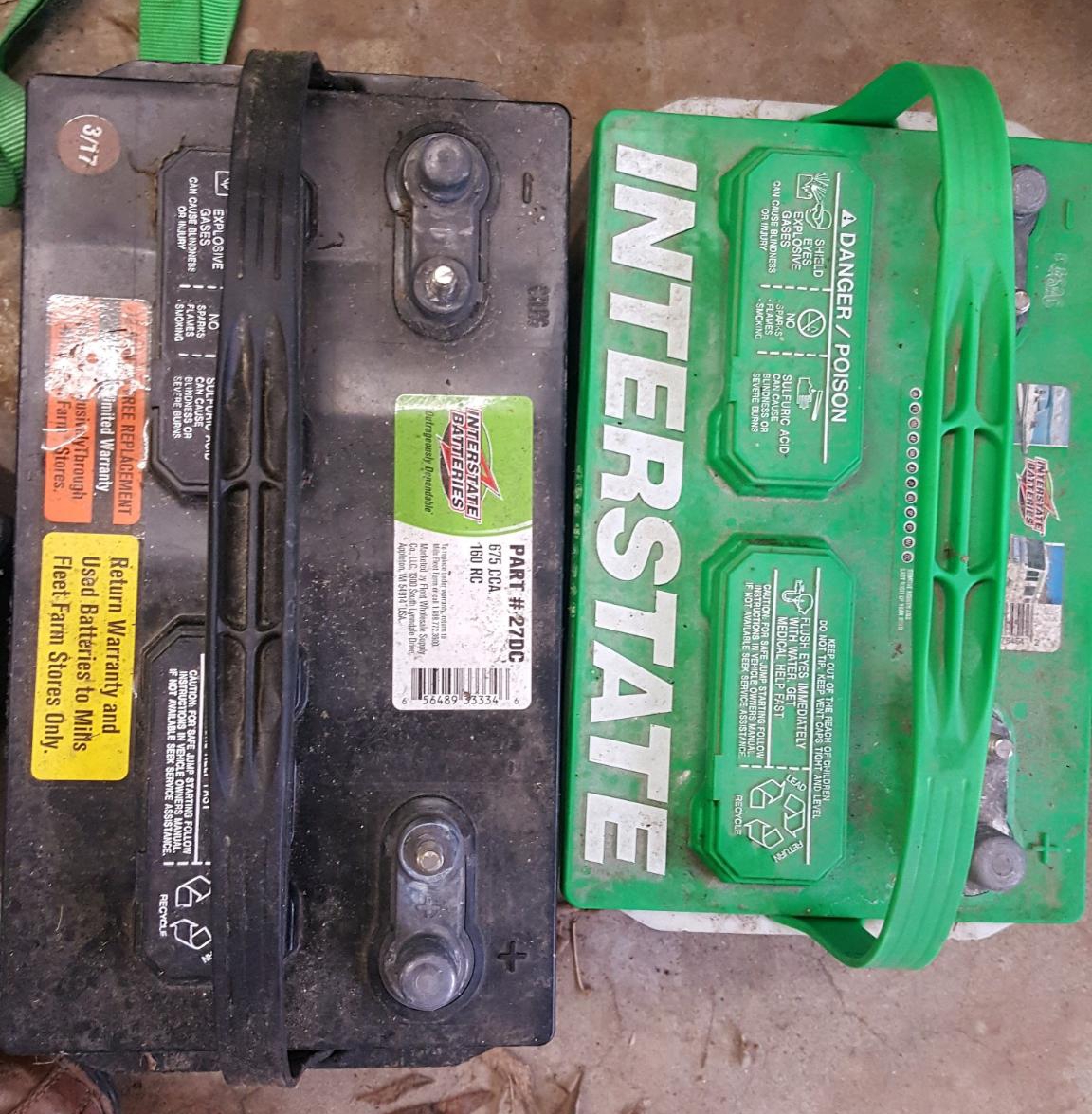
2. Battery Life
Battery life span varies depending on a number of factors: how often the battery is maintained, temperature, how often the battery is drained to dead, how the battery is charged and how often, age of the battery, etc.
Typical battery lifespans are as follows:
Starting battery = 3-12 years
Marine battery = 1-6 years
Golf Cart battery = 2-7 years
Deep Cycle battery = 4-8 years.
3. Battery Disconnect
Some campers have a battery disconnect on them. This keeps the battery from draining while the camper is not in use. The battery disconnect also takes the battery out of the loop of the charging system. This means that the battery is not charging even when the camper is plugged in.
Important note: If your camper is sitting in your driveway or in storage and its not plugged in, YOUR PROPANE DETECTOR WILL DRAIN YOUR BATTERY IN ABOUT 2 WEEKS. To keep that from happening, install a battery disconnect, or disconnect your battery’s negative cable. Or simply plug it in to 110 power and your battery will stay charged.
4. 2nd battery?
Do I need a second battery? This is a question we frequently get. The short answer is no, most campers do not need a second battery. If you go dry camping or boon-docking (not plugged in), then you might want to consider a second battery. Your air conditioner, microwave, TV, toaster, coffee maker, etc. all work on 110 AC power. Also, if you camp where it is cold and you will be running your furnace a lot while dry camping I suggest two 27 group batteries.
5. Drained Batteries FREEZE
Remember to disconnect and bring batteries in someplace warm in the winter. Do not set them on concrete for concrete will drain the battery.
6. Converter
Almost all campers have a converter on board. This means that while a camper is plugged in to an AC 110 outlet the converter will charge the battery. In addition, while driving, the charge line on the tow vehicle will also charge the battery.
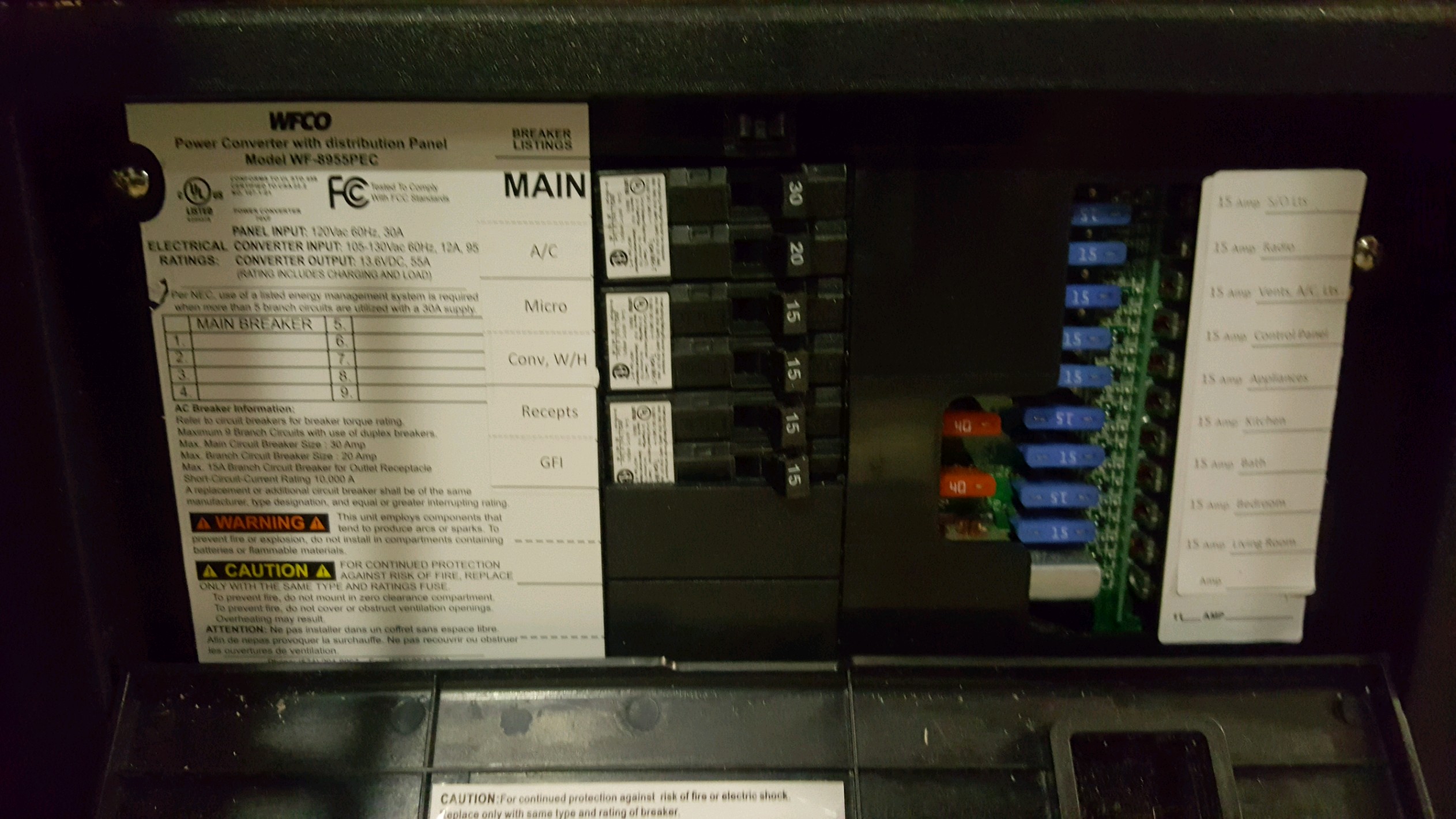
Battery converter
7. Inverter
8. Solar Power
9. Charge Controller
10. Special note on slide rooms and stabilizers.
Plug in when you are putting your slide room out, stabilizer jacks down, or using your leveling system. When an RV is plugged into a tow vehicle, or 110 power, the converter sends about 13 volts to put your slide rooms out or stabilizers down. If the RV is not plugged in and is just relying on the battery it is only getting about 11 volts. This may not sound like a lot but it really makes a difference when you are drawing a lot of juice like the above mentioned functions.


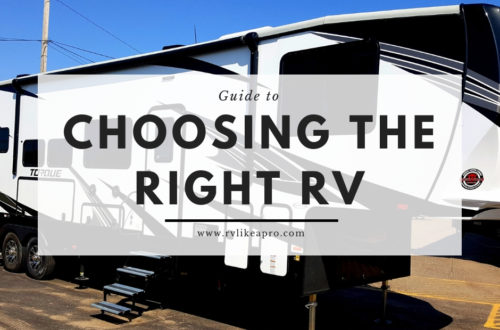
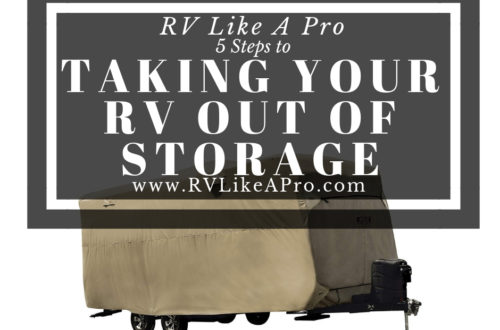
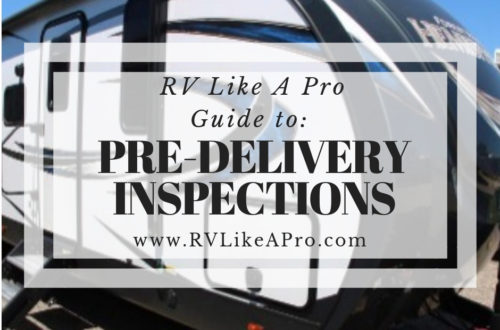
29 Comments
Jocelyn
I’m learning so much reading your post about RV living! Someday when we get an RV I’ll be so prepared!
Holly Bird
Your blog is the go to place for the best information on RVing!! Thank you for all the info!!
Nicki
Thank you so much!!
jen
Very informative! If I ever go back to an RV life, I’m leaving a window open to your blog LOL Its great!
Nicki
Thank you!
Katie Mitchell
Great info! My fiance and I want to go solar with ours eventually.
Nicki
It makes sense. Especially if you are planning on boondocking.
Karie
This is so great! You always have such good information. I can’t wait until we get our RV I know I can always find what I might have questions about answered here.
Kathy Phillips
This is so informational. I love reading your blog about RVing. When I get an RV I will come here for tips.
Tricia Snow
Draining the battery is really easy in an RV! Thanks for the tips!
Lauri
Great post for someone that knows nothing about that stuff (yes, me). I always leave it to my husband. Thanks for sharing !
Rachel
I learned so much!!
Stacey
How interesting! I’ve never really thought about RV batteries before and how to care for them. Informative!
Jo
Great read! I know next-to-nothing about RVs or RV living so I found this very informative!
Shelly
GREAT info! I learn so much when reading your posts.
Katie
I never knew there was so much to consider! Thanks for all the great information!
Jennifer Morrison
Very technical post! My son who loves every type of battery would adore this post!
Laura
There’s some great learning in this post! I had no idea there was so much to know!?
Flor
This is the place to go to learn everything RV! Great post!
Kelley
Very interesting. The solar power is the the neatest.
Rosanna
Lots of great information! Sharing this with my sister’s. Thanks!
Susan Franklin
I’m not sure if it will be next summer or the summer of 2020 when we take our 30 day RV trip… most likely 2020 after I retire from my full-time job. So, the one thing I’m sure of, is I know exactly where to go to get good information and advice about RV life. Thanks for all the great information you share!
Nicki
Thank you so much!
Dennis
This is a very informative and well laid out post. Nicely done!
Kirsten
Thanks for the info!!!
T.M. Brown
Such useful information!!!! Oh, my gosh. The details – you did a great job laying it all out.
Robin
Great tips and helpful info! Thanks so much 🙂
Nerissa Honnen
Thanks for sharing
Angela Greven
You have the best RV’ing info site I’ve ever read, really wish I would have had your knowledge when we had our pusher!! Thank you for the great info.